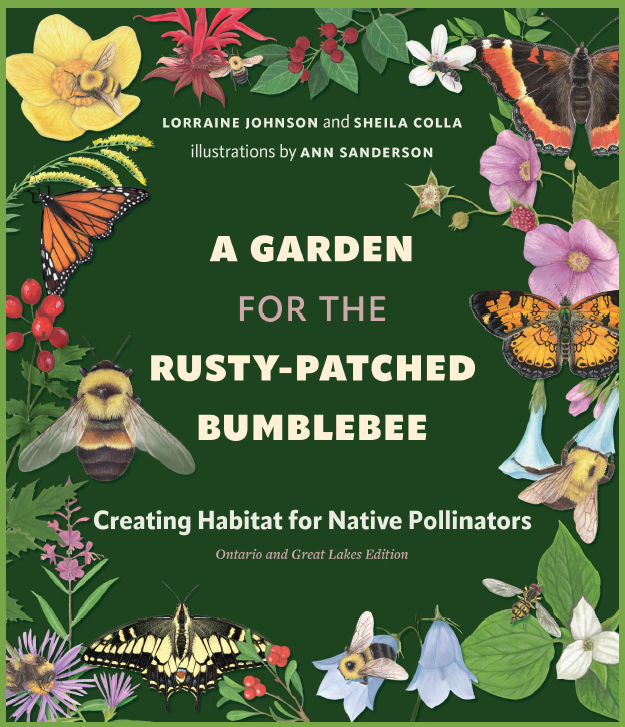Part of York University’s Faculty of Environmental and Urban Change in Toronto, Canada, we study and share what we learn about native pollinators – here in the Great Lakes Region and globally.
Colla Conservation Science Lab, led by Dr. Sheila Colla, is interested in all aspects of native pollinator conservation. Our research includes ecology, biology, policy, and community science. See our latest projects →
What we do
Our Research
Bumblebee Ecology & Conservation

Public Education

Collaboration

Interdisciplinary Approach

resources
Publication


A Garden for the Rusty-patched Bumblebee: Creating Habitat for Native Pollinators (Ontario and Great Lakes Edition) is a resource for gardeners who want to learn about pollinators and for ento fans who want to learn about gardening. Co-written by Colla Lab founder Dr. Sheila Colla and author Lorraine Johnson with beautiful illustrations by artist Ann Sanderson, it’s a national bestseller and available in many libraries and local bookshops. Find it here →
Poster

The endangered Rusty-patched Bumble Bee was once historically common throughout its large range in Canada (Ontario and Quebec) and the USA. In the past three decades it has become rare, with only a handful of individuals spotted each year.
This species is one of the first to emerge in the spring and the colony finishes up in the fall, requiring multi-season sustenance. This free poster (click below to download it) shows some examples of native plants to grow in a flower patch for the Rusty-patched to help support the full life cycle of this bee on the brink of extinction.
The design was made possible through a grant to Wildlife Preservation Canada from The Rogers Foundation and the beautiful illustrations are by artist Ann Sanderson.


